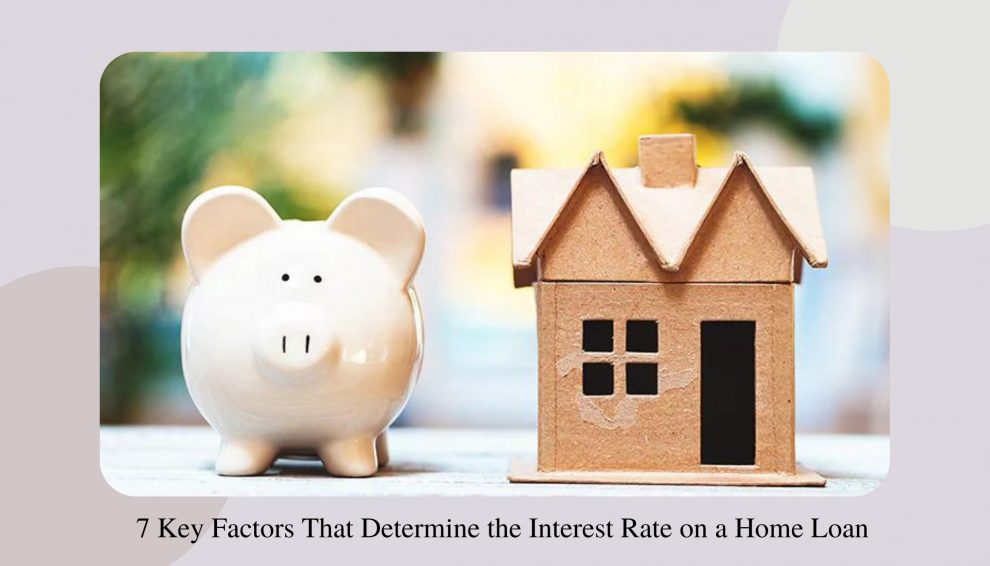Purchasing a home or constructing a house is always worthwhile because we have finite space on this planet. As a result, property prices continually reach new heights every year. Any decline is temporary and paves the way for new highs. Buying a new house by savings alone is a big challenge for the ordinary person. Financial institutions like PNB housing finance limited are working continuously towards bridging this gap through affordable home loans. Home loans offer an easy and inexpensive way to look for your dream home at the apartments near Washington without stressing upfront payments.
However, evaluating the cost of borrowing, i.e., the interest rate, is crucial before applying for a home loan. Read on to learn how a housing loan’s interest rate is determined.
Table of Contents
How can interest rates influence borrowing decisions?
A change in the interest rate can drastically impact the demand for home loans. A high-interest rate will translate into higher borrowing costs. As a result, the demand for home loans will be lower. On the other hand, a low-interest rate will increase the demand for home loans due to the reduced cost of borrowing. This is why finding the best housing loan interest rate is essential. Comparing the interest rate of multiple lenders can help you find the most cost-effective housing loan.
Factors affecting housing loan interest rates
There are multiple factors that decide the interest rates for housing loans. Here are the seven most prominent ones to know.
1. Credit score
The credit score is an important metric used by most lending institutions to assess a borrower’s creditworthiness in the market. A higher credit score signifies more creditworthiness and vice versa. Maintaining a credit score over 750 points is essential to get a lower interest rate on home loans. The lender reduces the interest rate for creditworthy borrowers as the risk of default is lower.
2. Loan tenure
Loan tenure can be defined as the term for which the loan has been taken or the total repayment duration. Loan tenure can influence the interest rate and EMI amounts for home loans. Shorter loan terms have a lower interest rate in most cases. However, the EMI amount will be higher than loans with higher tenure.
3. Down payment
The down payment amount is the sum paid by the homeowner up front for purchasing the house. It is a small percentage of the property’s value. Most lenders have strict policies regarding down payments for home loans, and borrowers must pay at least 10% of the price. A higher down-payment amount can reduce the interest rate for home loans as the amount borrowed will be lower.
4. Type of interest rate
There are multiple types of interest rates that financial institutions offer for home loans. It includes fixed, floating, and mixed interest rates. The fixed interest rate remains constant over the entire duration of the home loan, whereas floating interest rates can vary as per the changes in the market interest rate.
5. Property’s location
The location of the house you are planning to buy can also impact the rate of interest for the home loan. For example, a property in an urban area in an affluent neighborhood can get you a lower interest rate than a property in a remote location. This happens because the appreciation in the value of the property will be more in urban areas.
6. Nature of employment
Applicants with a stable job in a reputed organization are more likely to get a lower interest rate on home loans than those with an unstable job profile. The nature of employment can play a crucial role in getting affordable interest rates on housing loan.
7. Income and existing obligations
A higher income can reduce the interest rate for your home loans. This happens because the lender is surer about your repayment capacity. Also, if the existing debt obligations are lower, it can get you a favorable interest rate on the same grounds.










… [Trackback]
[…] Find More to that Topic: news969.com/7-key-factors-that-determine-the-interest-rate-on-a-home-loan/ […]
… [Trackback]
[…] Read More Information here to that Topic: news969.com/7-key-factors-that-determine-the-interest-rate-on-a-home-loan/ […]
… [Trackback]
[…] There you can find 60090 additional Info on that Topic: news969.com/7-key-factors-that-determine-the-interest-rate-on-a-home-loan/ […]
… [Trackback]
[…] Info on that Topic: news969.com/7-key-factors-that-determine-the-interest-rate-on-a-home-loan/ […]
… [Trackback]
[…] Read More here on that Topic: news969.com/7-key-factors-that-determine-the-interest-rate-on-a-home-loan/ […]
… [Trackback]
[…] Information to that Topic: news969.com/7-key-factors-that-determine-the-interest-rate-on-a-home-loan/ […]
… [Trackback]
[…] Read More Info here to that Topic: news969.com/7-key-factors-that-determine-the-interest-rate-on-a-home-loan/ […]
… [Trackback]
[…] Read More here on that Topic: news969.com/7-key-factors-that-determine-the-interest-rate-on-a-home-loan/ […]
… [Trackback]
[…] Read More on on that Topic: news969.com/7-key-factors-that-determine-the-interest-rate-on-a-home-loan/ […]
… [Trackback]
[…] Find More on that Topic: news969.com/7-key-factors-that-determine-the-interest-rate-on-a-home-loan/ […]